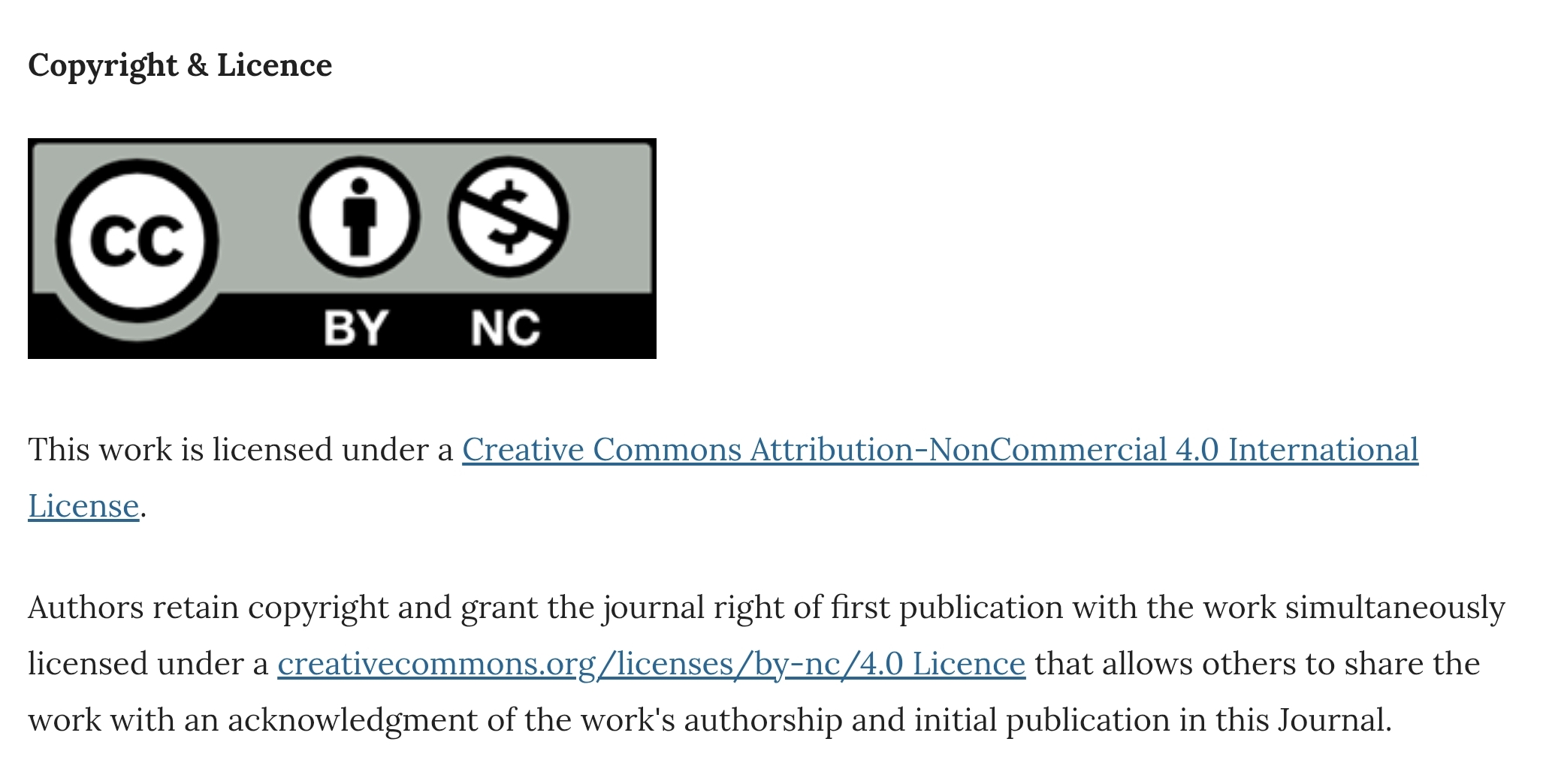Consultation Liaison Psychiatry - Diagnostic concordance between referring physician and psychiatrist
DOI:
https://doi.org/10.30834/KJP.33.1.2020.182Keywords:
consultation liaison, diagnostic concordanceAbstract
Background: Consultation – liaison psychiatry (CLP) provides expert advice and act as a liaison. There is a high prevalence of psychiatric comorbidities among patients of other specialities, yet the referral rates are low, probably due to inadequate psychiatric awareness which can be assessed from the diagnostic concordance.
Objective: To assess diagnostic concordance between the psychiatrist and referring doctor.
Materials and Methods: This is a cross-sectional record-based study of all inpatients referred to CLP. Data was collected from CLP registry.
Results: Most of the referrals were from General Medicine. The most common reason for referral was alcohol use disorders and common diagnoses made by referring physicians were alcohol use disorders, delirium and mood disorders, similar to the psychiatrist’s diagnoses; however, deliberate self harm (DSH), a common diagnosis made by the referring doctor, constituted only 4.2% of psychiatrist’s diagnoses. There was complete diagnostic concordance for 40.9%; perfect agreement was found for DSH and alcohol use disorders, substantial agreement for delirium and moderate agreement for mood disorders. The agreement was low for DSH with comorbid depression, other substance use disorders and organic mental disorders.
Conclusion: The diagnostic concordance for common mental health problems is low, according to the present study. CLP needs to extend its educational function towards other specialities and it should be an active component of undergraduate psychiatric training.
Keywords: Consultation Liaison Psychiatry, Diagnostic concordance
Downloads
References
Sadock BJ, Sadock VA. Consultation-liaison psychiatry. Kaplan &Sadock's Synopsis of Psychiatry. 10th ed. Philadelphia, PA: Lippincott Williams & Wilkins; 2007. p. 828-38.
Grover S, Sahoo S, Aggarwal S, Dhiman S, Chakrabarti S, Avasthi A. Reasons for referral and diagnostic concordance between physicians/surgeons and the consultation-liaison psychiatry team: An exploratory study from a tertiary care hospital in India. Indian journal of psychiatry. 2017 ;59(2):170-75.
Wood R, Wand AP, Hunt GE. Relationship between timeliness of contact and length of stay in older and younger patients of a consultation-liaison psychiatry service. BJPsych bulletin. 2015;39(3):128-33.
Bujoreanu S, White MT, Gerber B, Ibeziako P. Effect of timing of psychiatry consultation on length of pediatric hospitalization and hospital charges. Hospital pediatrics. 2015 ;5(5):269-75.
Desan PH, Zimbrean PC, Weinstein AJ, Bozzo JE, Sledge WH. Proactive psychiatric consultation services reduce length of stay for admissions to an inpatient medical team. Psychosomatics. 2011;52(6):513-20.
Grover S. State of consultation-liaison psychiatry in India: Current status and vision for future. Indian journal of psychiatry. 2011;53(3):202-13.
Bhatia MS, Balakrishna NK, Bohra N, Gupta H, Malik SC. Psychiatric morbidity in patients attending medical OPD. Indian journal of psychiatry. 1987;29(3):243-6.
Bagadia VN, Ayyar KS, Lakdawala PD, Sheth SM, Acharya VN, Pradhan PV. Psychiatric morbidity among patients attending medical outpatient department. Indian J Psychiatry 1989; 28:139-44.
Goyal A, Bhojak MM, Verma KK, Singhal A, Jhirwal OP, Bhojak M. Psychiatric morbidity among patients attending cardiac OPD. Indian J Psychiatry 2001; 43:335-9.
Agrawal P, Malik SC, Padubidri V. A study of psychiatric morbidity in gynecology outpatient clinic. Indian Journal of psychiatry. 1990 ;32(1):57-63.
Aljarad AM, Al Osaimi FD, Al Huthail YR. Accuracy of psychiatric diagnoses in consultation liaison psychiatry. Journal of Taibah University Medical Sciences. 2008 ;3(2):123-8.
Yamada K, Hosoda M, Nakashima S, Furuta K, Awata S. Psychiatric diagnosis in the elderly referred to a consultation?liaison psychiatry service in a general geriatric hospital in Japan. Geriatrics & gerontology international. 2012;12(2):304-9.
Su JA, Tsai CS, Hung TH, Chou SY. Change in accuracy of recognizing psychiatric disorders by non?psychiatric physicians: Five?year data from a psychiatric consultation–liaison service. Psychiatry and clinical neurosciences. 2011;65(7):618-23.
Atram AR. Comparison between Psychiatrists and Non-Psychiatric Physicians Identifying Psychiatric Symptoms: A Clinical Study. J Psychiatry. 2015; 18:204
Dilts SL, Mann N, Dilts JG. Accuracy of
referring psychiatric diagnosis on a consultation-liaison service. Psychosomatics. 2003;44(5):407-11.
Al-Huthail YR. Accuracy of referring psychiatric diagnosis. International journal of health sciences. 2008 ;2(1):35-8.
Tekkalaki B, Tripathi A, Arya A, Nischal A. A descriptive study of pattern of psychiatric referrals and effect of psychiatric intervention in consultation-liaison set up in a tertiary care center. Indian Journal of Social Psychiatry. 2017;33(2):165-70.
Patra P, Divinakumar KJ, Prakash J, Patra B, Chakraborty R. Clinico-psycho-social profile of patients brought under consultation-liaison psychiatry care in a large tertiary care referral hospital. Industrial psychiatry journal. 2017;26(1):24-7.
Keertish N, Sathyanarayana MT, Kumar BH, Singh N, Udagave K. Pattern of psychiatric referrals in a tertiary care teaching hospital in southern India. Journal of clinical and diagnostic research: JCDR. 2013;7(8):1689-91.
Hartling L, Hamm M, Milne A, et al. Validity and Inter-Rater Reliability Testing of Quality Assessment Instruments [Internet]. Rockville (MD): Agency for Healthcare Research and Quality (US); 2012 Mar. Table 2, Interpretation of Fleiss' kappa (?) (from Landis and Koch 1977) Available from: https://www.ncbi.nlm.nih.gov/books/NBK92295/table/methods.t2/
Jindal RC, Hemrajani DK. A study of psychiatric referrals in a general hospital. Indian journal of psychiatry. 1980 ;22(1):108-10.
http://niti.gov.in/content/life-expectancy
Gopalan MR, Karunakaran V, Prabhakaran A, Jayakumar KL. Prevalence of psychiatric morbidity among cancer patients–hospital-based, cross-sectional survey. Indian journal of psychiatry. 2016;58(3):275-80.
Downloads
Published
How to Cite
Issue
Section
License
Copyright (c) 2020 Kerala Journal of Psychiatry

This work is licensed under a Creative Commons Attribution-NonCommercial 4.0 International License.












